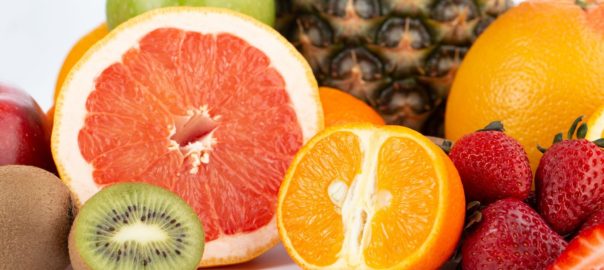Scurvy is a disease caused by a vitamin C (ascorbic acid) deficiency.
Without vitamin C, the body is unable to synthesize collagen necessary for wound healing and healthy skin, bones, teeth, joints, and blood vessels.
Vitamin C is also a powerful antioxidant that effectively fights free radicals and prevents oxidative stress throughout the body.
In addition, it plays a critical role in adrenal and thyroid function.
Scurvy Symptoms
If you're not eating fresh fruits and vegetables regularly, then you're likely at risk of developing scurvy. This should be your first clue.
Other early warning signs and symptoms include:
- Loss of appetite
- Fatigue
- Irritability
- Muscle spasms, cramping or pain
- Brain fog
- Diarrhea
- Weakness
- Fever
- Bruising
- Wounds that won't heal
- Bleeding or swollen gums
- Tooth decay or tooth loss
- Weight loss
- Coiled hair
- Skin rashes or red spots
- High blood pressure
- Depression
Resurgence of Scurvy
In the 18th century, scurvy caused the teeth of sailors to fall out due to a lack of vitamin C in their diet aboard ship. However, it appears scurvy isn't just a disease of the past.
Based on data collected between 2003 and 2004, the Center for Disease Control and Prevention (CDC) found 6 to 8% of the general population had a vitamin C deficiency severe enough to qualify as a scurvy diagnosis.
Between 2009 and 2014, almost 25% of patients admitted to a hospital in Springfield, Massachusetts with unexplained symptoms were diagnosed with a vitamin C deficiency.
In the United Kingdom, the rate of scurvy-related hospital admissions increased by 27% between 2009 and 2014.
And a researcher at a Diabetes Center in Australia documented more than a dozen cases in recent years as well.
Why is Scurvy Making a Comeback?
This resurgence is surprising to doctors and health officials because the amount of vitamin C needed to prevent scurvy is relatively low. For example, one large orange or one bowl of strawberries a day provides enough vitamin C to do the trick.
But the sad truth is that more and more people don't regularly eat fresh fruits and vegetables. Or, if they eat these foods at all, they are either from a package or overcooked, which almost entirely diminishes the vitamin C content.
Other modern day factors may also deplete the body of vitamin C, which includes:
- Chronic stress
- Environmental toxins
- Illness
- Injury
- Synthetic hormones and birth control pills
- Steroid medications
- Diuretics
- Aspirin
It's also worth noting that a well-functioning digestive system is necessary to properly digest and absorb vitamin C (and all other nutrients) from food. Thus, with the rise of gastrointestinal diseases and dysfunction, this could also be a contributing factor.
Best Sources of Vitamin C
Uncooked, fresh fruits and veggies are the best sources of vitamin C. Those you can enjoy raw with the highest vitamin C content include:
- Papaya
- Bell peppers
- Broccoli
- Strawberries
- Pineapple
- Oranges
- Kiwi
- Cantaloupe
- Cauliflower
- Kale
- Cabbage
- Grapefruit
- Raspberries
- Tomatoes
And in the case of a vitamin C deficiency, it may be necessary to supplement with collagen until optimal levels are reached.
In Conclusion
Scurvy, a condition caused by a severe vitamin C deficiency, is making a comeback around the world mostly in part to our modern way of life. This means your risk may be real even though you're not an 18th-century pirate.
Therefore, it's important to consume fresh vitamin C rich fruits and vegetables every day to prevent a vitamin C deficiency and the development of scurvy.
[expand title="References"]
National Institutes of Health - Vitamin C Fact Sheet for Professionals
Pelton, R. (2001). Drug-induced nutrient depletion handbook. Hudson, OH: Lexi-Comp.
Scurvy makes surprise return in Australia. (2016, November 29).
Scurvy Is a Serious Public Health Problem. (2015, November 20).
The World's Healthiest Foods - Vitamin C
[/expand]


